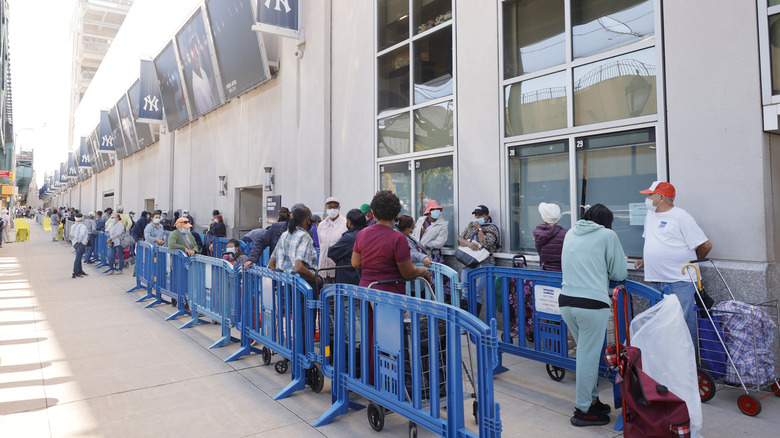New Study Suggests SNAP Program May Help Prevent Child Abuse
A study recently led by a professor of social work at The Ohio State University has linked the availability of Supplemental Nutrition Assistance Program (SNAP) benefits to a lowered rate of reported child abuse in the United States. The Hill summarized the report by author Michelle Johnson-Motoyama, explaining that over the course of the 14-year study, research showed that a 5% increase in a state's family eligibility for SNAP led to a 7.6% to 14.3% percent decrease in the number of caseloads handled by Child Protective Services (CPS) and the foster system.
SNAP, previously known as food stamps, is a government program that helps low income families pay for groceries. According to the Center on Budget and Policy Priorities, the program helped 41.5 million Americans in 2021, which accounts for about 13% of the population. Although it is a federally run program, states help distribute the funds and have some flexibility in determining eligibility within their jurisdictions.
The study noted that states with less barriers to SNAP eligibility reported fewer cases of child abuse, a correlation which became clearer the more policies a state had in place to improve eligibility. Johnson-Motoyama notes that financial stress on unemployed or low-income parents "may increase risks linked to child maltreatment" (per Newswise). According to the Illinois Department of Child and Family Services, child abuse can include physical, sexual, or mental mistreatment which cause injury, but can also include parental neglect from not providing basic needs like food or medical care.
Combating food insecurity
Following the release of the report, Johnson-Motoyama stated that she thinks policymakers should pay attention to the data as they enter budget discussions around welfare programs (per Newswise). During the COVID-19 pandemic, access to increased SNAP benefits was provided as part of the government's emergency response, however, those extensions are set to expire in August (via GO Banking Rates). If the benefits are cut off now, The Hill says the study would result in 700,000 households having their benefits reduced in just Ohio.
Despite the easing of pandemic restrictions, the economy has not fully recovered, and combined with record-high inflation on food and gas due to supply chain issues and Russia's war on Ukraine, food insecurity has increased, leading to an increased dependence on food banks (via AP News). While Yahoo News reports some lawmakers are pushing to increase SNAP benefits to combat the ongoing inflation crisis, others continue to suggest the system is a target for fraud and should be scaled back. GO Banking Rates notes that the idea that SNAP is rife with fraud is one of the biggest misconceptions about the program, explaining that as of 2017, fraud accounted for less than 1.5% of the program's funds.
Although the program has proven to be immeasurably beneficial to children, Mother Jones reports that a document shared by Republicans in congress shows the party plans to slash support for welfare programs including SNAP and federally funded school lunch programs if they regain control of congress in November.

